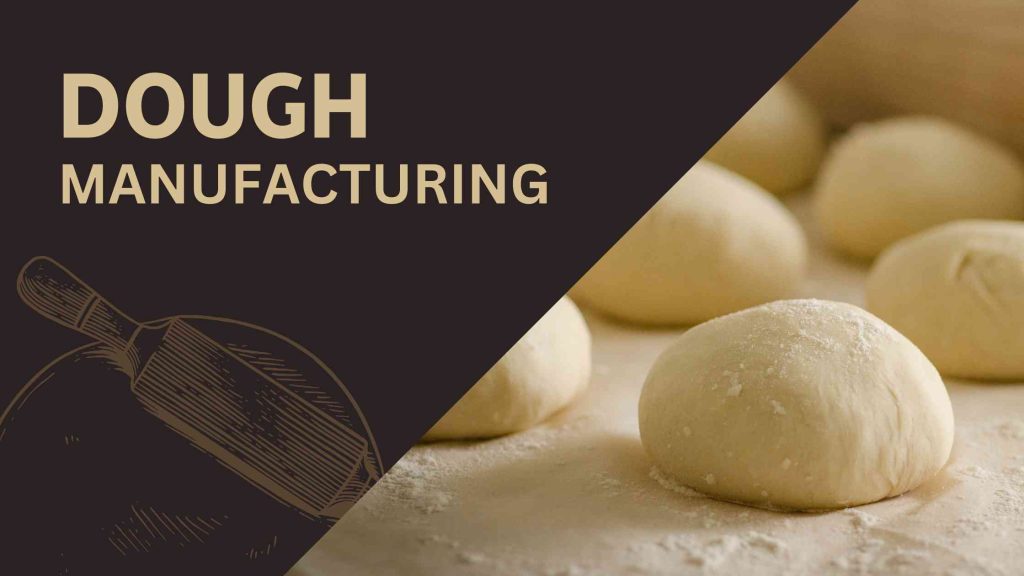The production of dough plays a vital role in the food industry, serving as a foundation for numerous products such as bread, pastries, and pizza. Proper management practices are essential to ensure the efficient and effective production of high-quality dough. This article provides a detailed guide on dough manufacturing management, highlighting key considerations, best practices, and strategies to optimize the production process.
Recipe Standardization:
Establishing standardized recipes is the foundation of successful dough manufacturing. A consistent and accurate formula ensures the dough meets quality and taste expectations. Factors to consider when standardizing recipes include ingredient measurements, mixing techniques, fermentation time, and temperature control. Detailed documentation and regular quality checks should be implemented to maintain recipe accuracy.
Ingredient Sourcing and Inventory Management:
The quality of ingredients significantly impacts the final product. Therefore, it is crucial to source high-quality components from reputable suppliers. Establishing solid relationships with suppliers and conducting regular quality checks will ensure consistent ingredient quality. Effective inventory management practices minimize waste and prevent ingredient shortages by maintaining optimal stock levels, monitoring shelf life, and implementing a first-in-first-out (FIFO) approach.
Equipment and Facility Maintenance:
Well-maintained equipment and facilities are essential for smooth dough manufacturing operations. Regular inspections, cleaning, and maintenance of mixers, ovens, proofers, and other gear ensure optimal performance. A preventive maintenance schedule helps identify and address potential issues before they escalate, reducing downtime and increasing productivity.
Process Optimization:
Efficiency in the dough manufacturing process can be achieved through process optimization. Analyze each process step, from ingredient scaling to dough mixing, fermentation, shaping, and baking. Identify bottlenecks, time-consuming steps, and potential areas for improvement. Implementing lean manufacturing principles, such as eliminating non-value-added activities, standardizing workflows, and optimizing equipment utilization, can streamline the process and enhance productivity.
Quality Control and Assurance:
Maintaining consistent quality is vital in dough manufacturing. Implement robust quality control measures to ensure that the dough meets desired specifications. Regularly test crucial quality attributes such as texture, taste, aroma, and shelf life. Establish a system for tracking and addressing quality deviations promptly. Executing a Hazard Analysis and Critical Control Points (HACCP) program can help identify and mitigate potential risks throughout the manufacturing process.
Staff Training and Development:
Properly trained and skilled staff are crucial for efficient dough manufacturing. Provide comprehensive training programs to educate employees about dough production techniques, equipment operation, safety protocols, and quality standards. Regularly assess employees’ performance and provide opportunities for continuous development to enhance their skills and knowledge.
Waste Reduction and Sustainability:
Reducing waste and adopting sustainable practices in dough manufacturing is not only environmentally responsible but also financially beneficial. Implement waste management strategies to minimize waste by recycling, composting, and optimizing ingredient usage. Explore energy-efficient technologies and consider using renewable energy sources to decrease the carbon footprint of the manufacturing process.
Traceability and Recall Procedures:
A robust traceability system is essential for quick and accurate product recalls should any quality or safety issues arise. Implement a tracking system to record batch numbers, production dates, and other relevant information. It enables effective traceability throughout the supply chain, facilitating prompt recalls if necessary and ensuring consumer safety.
Efficient dough manufacturing management is crucial for producing high-quality products consistently. Companies can streamline their operations by implementing standardized recipes, optimizing processes, ensuring ingredient quality, prioritizing staff training, minimizing waste, and enhancing productivity. Moreover, incorporating quality control measures, maintaining equipment, and implementing sustainable practices will improve customer satisfaction, profitability, and long-term success in the competitive food industry.
Acumatica ERP, a comprehensive cloud-based enterprise resource planning solution, can significantly enhance the dough manufacturing industry in several ways. Acumatica enables dough manufacturers to streamline operations, improve efficiency, and achieve higher productivity levels by integrating various business processes and providing real-time visibility into operations.
One of the critical benefits of Acumatica cloud ERP for the dough manufacturing industry is its ability to automate and optimize production processes. It allows manufacturers to effectively manage their inventory, plan production schedules, and track raw material usage. Manufacturers can make informed decisions, reduce waste, and improve production efficiency with accurate real-time data. Contact us for a customized ERP.

Sangeetha brings 20 years of experience in Information Technology which includes Solution architecting, building micro services, research, and evaluation of business applications, integrating apps.

